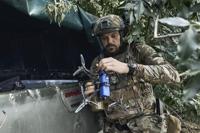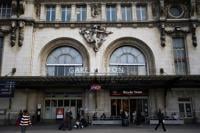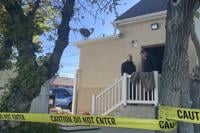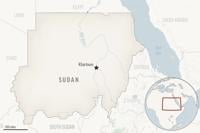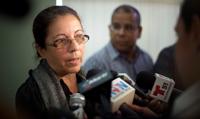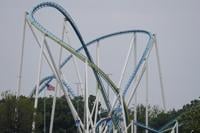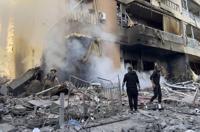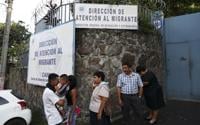Russian air defenses on Tuesday foiled a Ukrainian drone attack on Moscow that prompted authorities to briefly close one of the city’s international airports, officials said, as a Western analysis said Russia has managed to slow Kyiv's recently launched counteroffensive.
The drone attack, which follows previous similar raids on the Russian capital, was the first known assault on the Russian capital since launched 11 days ago by mercenary chief . His Wagner troops marched on Moscow in the biggest — though short-lived — challenge to Russian President Vladimir Putin in more than two decades of his rule.
Authorities in Ukraine, which generally avoid commenting on attacks on Russian soil, didn't say whether it launched the drone raid.
The Russian Defense Ministry said four of the five drones were downed by air defenses on the outskirts of Moscow and the fifth was jammed by electronic warfare means and forced down.
Moscow Mayor Sergei Sobyanin said there were no casualties or damage.
The drone attack prompted authorities to temporarily restrict flights at Moscow’s Vnukovo airport and divert flights to two other Moscow main airports. Vnukovo is about 15 kilometers (9 miles) southwest of Moscow.
In May, jolted the Russian capital, in what appeared to be Kyiv’s deepest strikes into Russia.
The raid came as Ukrainian forces have continued probing Russian defenses in the south and the east of their country in the initial stages of a counteroffensive.
Oleksiy Danilov, the secretary of Ukraine’s Security and Defense Council, charged that the military was currently focusing on destroying Russian equipment and personnel and claimed that the last few days of fighting have been particularly “fruitful.”
He provided no evidence for his claim and it was not possible to independently verify it.
The Ukrainians are up against minefields, anti-tank ditches and other obstacles, as well as layered defensive lines reportedly up to 20 kilometers (12 miles) deep in some places as they attempt to dislodge Russian occupiers.
The U.K. Defense Ministry said Tuesday the Kremlin’s forces have “refined (their) tactics aimed at slowing Ukrainian armored counteroffensive operations in southern Ukraine.”
Moscow has placed emphasis on using anti-tank mines to slow the onslaught, the assessment said, leaving the attackers at the mercy of Russian drones, helicopters and artillery.
“Although Russia has achieved some success with this approach in the early stages of Ukraine’s counteroffensive, its forces continue to suffer from key weaknesses, especially overstretched units and a shortage of artillery munitions,” the assessment said.
Western analysts say the counteroffensive, even if it prospers, won’t end the war which started with Russia's full-scale invasion in February 2022.
Russia, meanwhile, has continued its missile and drone barrage deep behind the front line.
Oleksandr Lysenko, mayor of the city of Sumy in northeastern Ukraine, said that three people were killed and 21 others were injured in a Russian drone strike Monday that damaged two apartment buildings.
Ukrainian President Volodymyr Zelenskyy said the attack also damaged the regional headquarters of the Security Service of Ukraine, the country's main intelligence agency. He argued that the country needs more air defense systems to help fend off Russian raids.
___
Follow AP’s coverage of the war in Ukraine:


